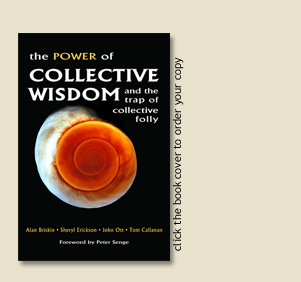The Transcendentalist Club
Returning to the United States, Emerson was on fire. He began a
new career lecturing, remarried, and joined with a small group of
people who were similarly disinclined to the aridness of Harvard’s
intellectual climate. They formed a club, later known as the Transcendentalist
Club, whose one rule of membership was that no one’s presence should
restrain a topic from being discussed. The group, which encompassed
ministers, philosophers, and educators as well as farmers, merchants,
and mechanics, included Henry David Thoreau, Theodore Parker, Margaret
Fuller, Amos and Abigail Alcott, Elizabeth Hoar, Sarah Ripley, and
James Freeman Clarke, who later said, “We are called like-minded
because no two of us think alike.” The group fostered a great collaboration
that allowed, in fact required, the distinctiveness of each person’s
unique gifts. Like a ring of giant sequoia trees, they provided each
other the root system for the growth of the individual person.
Their
conversations were permeated with the belief that humans are not
the creators of those things we treasure most—justice, truth, love,
and freedom. Rather, we are the receptive vessels in which the universal
will expresses itself. Differing with each other on any specific
topic, Emerson and his colleagues collectively expressed a desire
for greater life, energy, and originality in human thought and activities.
They sought to bridge diverse and often-competing perspectives, uniting
spirituality with social reform, science with human intuition, and
the study of nature with the magnificence of human thought. Their
individual efforts and social awareness found resonance in the fields
of education, theology, art, business, and what would later become
collective efforts on behalf of the environment and social justice.
Thoreau’s small book on civil disobedience, for example, helped inspire
Mohandas Gandhi’s ideas on nonviolent resistance, which in turn inspired
the works of Martin Luther King Jr. and Nelson Mandela. |









